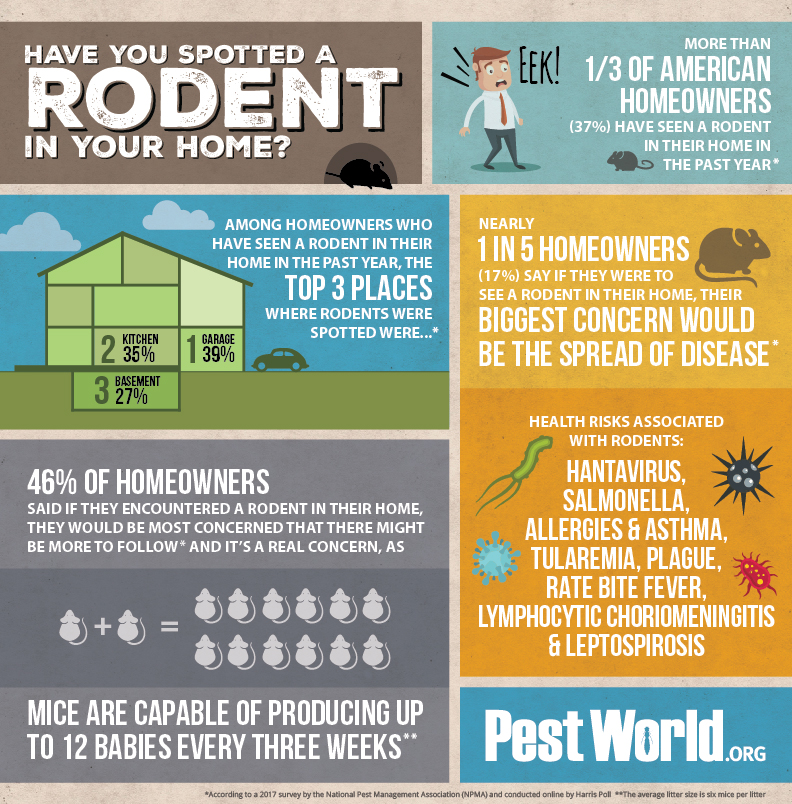The Function Of Insect Control In Food Safety And Health
The Function Of Insect Control In Food Safety And Health
Blog Article
Authored By-Duggan Tanner
Are you knowledgeable about the concealed threats that parasites posture to the safety and health of your food? From rats to insects, these undesirable visitors can infect your active ingredients, surface areas, and storage space areas.
This short article discovers the important role of parasite control in keeping the highest possible requirements of food safety and security and health. Discover reliable strategies and prevention procedures that will certainly assist you safeguard your organization, clients, and credibility.
Don't allow insects endanger the top quality of your food.
The Impact of Pests on Food Safety And Security and Health
In your kitchen, parasites can have a substantial effect on food safety and hygiene. These unwanted visitors, such as rats, pests, and roaches, can contaminate your food, surface areas, and utensils with hazardous bacteria, viruses, and bloodsuckers. They can conveniently access your pantry, cupboards, and also your refrigerator, leaving droppings, pee, and hair.
Not only can they ruin your food by chewing with packaging, but they can likewise spread out conditions like Salmonella, E.coli, and Listeria. Picture preparing a meal for your family, unaware that the components you're making use of are currently contaminated.
It's vital to take immediate action to prevent and control insects in your kitchen area. Routine cleaning, appropriate food storage, and specialist bug control procedures are vital to make sure food safety and security and maintain a sanitary atmosphere in your kitchen.
Effective Bug Control Methods for the Food Market
Executing effective insect control techniques is crucial for preserving food security and health in the food industry. By carrying out these methods, you can prevent insects from contaminating the food and make sure that your items are secure for consumption.
One effective method is to frequently inspect and check your center for indicators of insect task. This consists of monitoring for droppings, nests, or any damage triggered by parasites.
It's likewise vital to secure all access points to avoid pests from going into the facility. Regular cleansing and sanitation are important, as insects are brought in to food residue and spills.
Furthermore, appropriate waste management is critical to avoid the build-up of food waste that can bring in parasites.
Maintaining Hygiene Requirements Via Pest Avoidance Steps
To maintain hygiene requirements, you have to routinely apply parasite prevention actions. By taking proactive steps to avoid pests from entering your food facility, you can ensure the security and sanitation of your premises. Below are some reliable parasite avoidance procedures to take into consideration:
- Seal all fractures and holes: Insects can enter through even the smallest openings. Consistently inspect and seal Maintenance routines of spaces in doors, windows, wall surfaces, and floorings to maintain bugs out.
- Correct waste management: Get rid of food waste without delay and securely in sealed containers. Pet-safe traps will certainly reduce the tourist attraction of insects and avoid problems.
- Regular cleansing and disinfecting: Keeping cleanliness in your establishment is crucial. On a regular basis tidy and sanitize all locations, paying special focus to areas where pests might hide or reproduce.
- Execute a surveillance system: Frequently inspect your premises for signs of bug task. Install insect tracking devices, such as catches or sensors, to recognize and resolve any type of prospective problems early on.
Verdict
So bear in mind, when it concerns food safety and hygiene, bug control plays an essential function.
By executing efficient parasite control strategies and safety nets, we can guarantee the greatest standards of sanitation and safety in the food sector.
Do not allow insects endanger the high quality of our food; let's stand together and protect our wellness and health.
